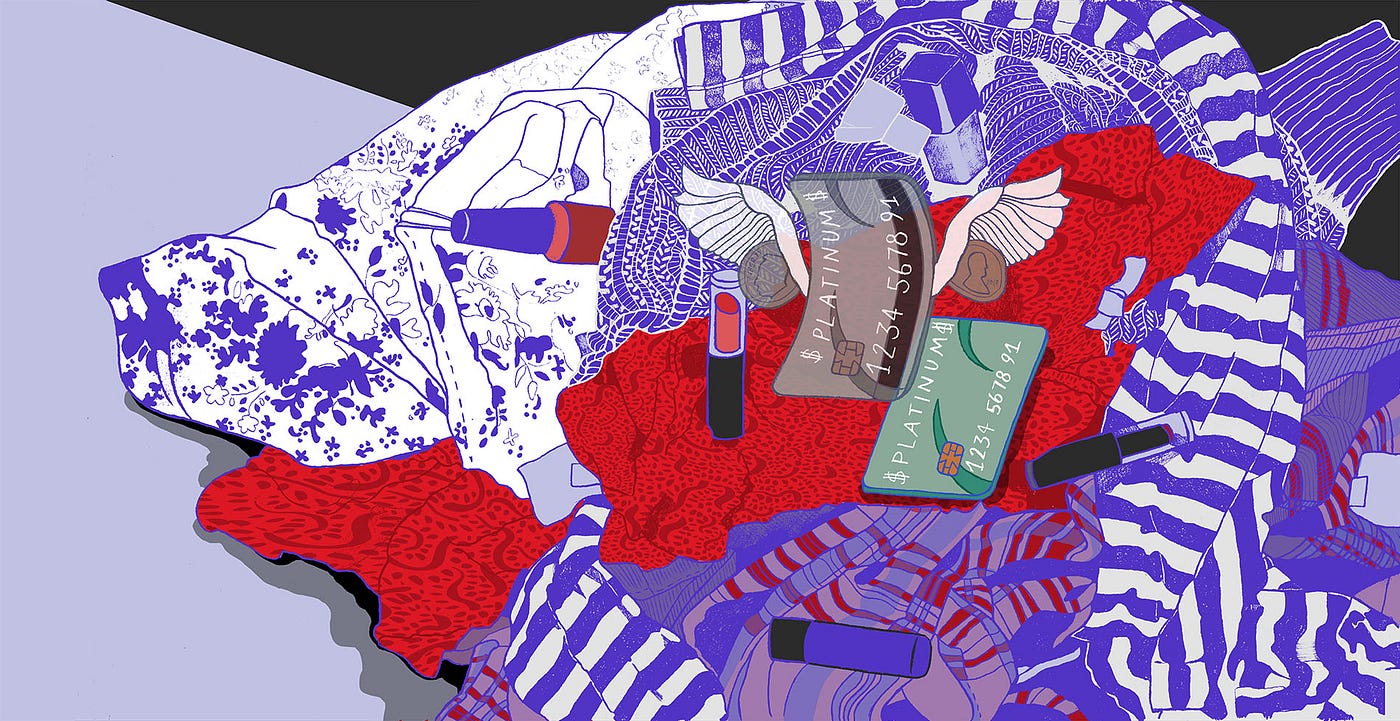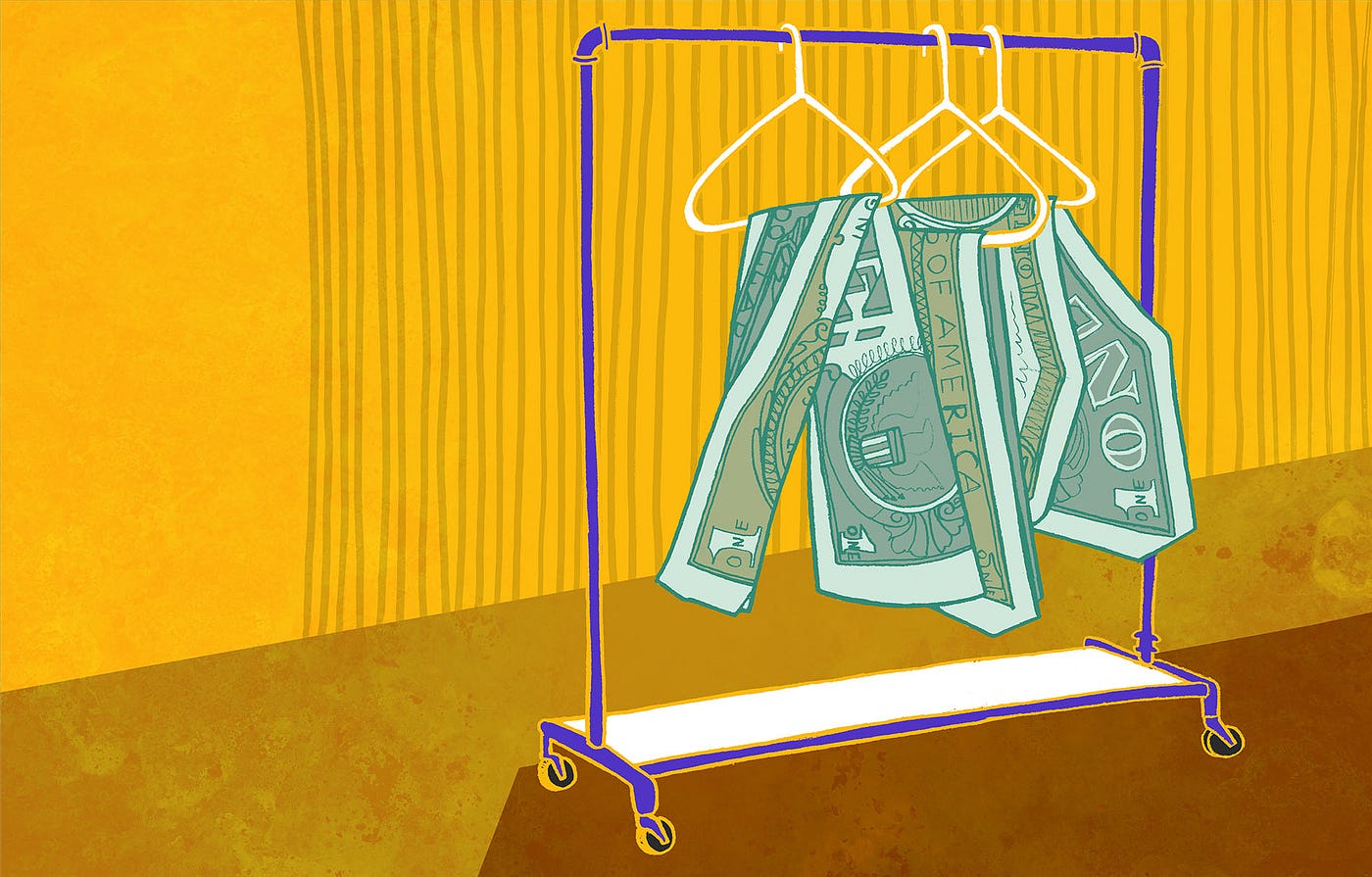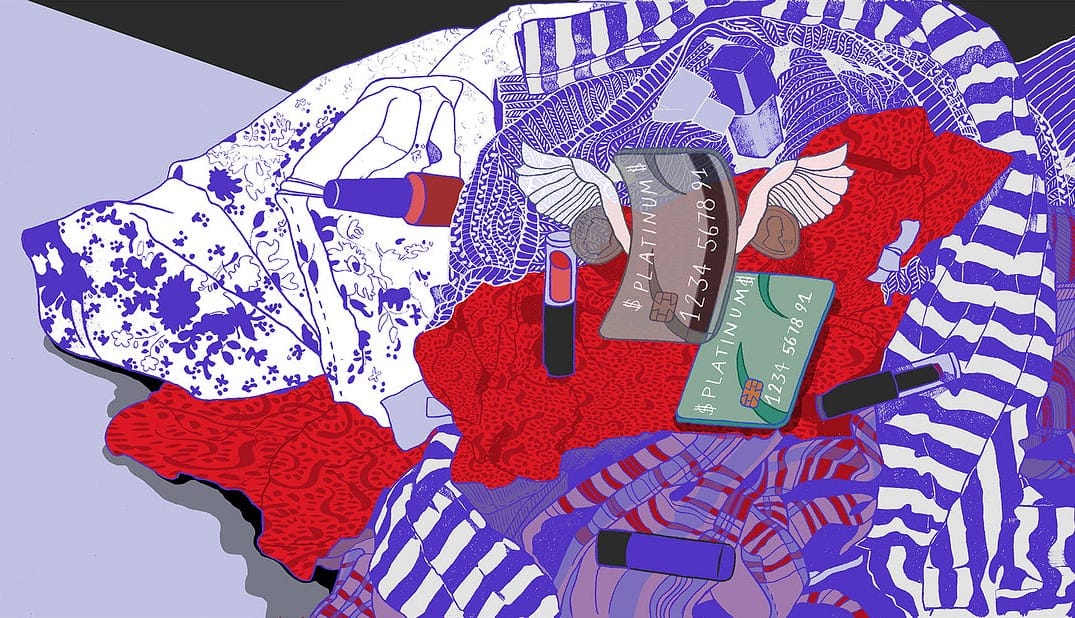
“We really hope you can make it to the conference in Hawaii,” reads the email with the attached offer letter. I call my mom, jump around the living room and reply that I would be thrilled to join the team. As I click Send, my mind races with the list of obligatory female grooming and primping that is required before I board the flight.
I have been asked to wear white to the conference, as if all women happen to possess a closet full of conference-appropriate white maxi dresses in fabrics befitting the sub-tropical Hawaiian climate. I go shopping and purchase a white lace blouse that looks good enough and a white skirt that doesn’t quite spark joy and is two sizes larger than I used to be.
I look up the gym across the street from my new office and fantasize about lunchtime workouts. It costs $200 per month. I decide to try running outdoors instead and pack my running shoes in a carry-on.
I buy a hot-pink dress because I’m trying to wear more color, and because my new manager specifically said to wear something colorful to the awards ceremony. She meant it casually, unaware that I own only black dresses. The hot-pink dress is on sale for $39.99, so I also buy a casual blue shirt.
Cultural norms dictate that I must appear effortlessly beautiful, that I must not reveal how much energy it takes to look average.
The nonchalance of this blue shirt will balance out my wardrobe.
I buy two new bottles of sunscreen — SPF 38 and SPF 50 — ostensibly to prevent skin cancer, but mostly to prevent wrinkles. I also buy a purple one-piece swim dress that sparks even less joy but aligns with my conviction that only small-breasted women can wear bikinis on a work trip.
A petite Asian woman paints my toenails red for $30. Two days later, a different petite Asian woman paints my fingernails pink for $21. A college-educated Millennial of ambiguous ethnic descent but definitive American nationality removes the hair from my underarms and the area known in public as my “bikini line” for $53. She asks if I want an “extended bikini,” and I respond no. There is nothing “extended” about my purple one-piece swim dress. I tip her 18 percent because that is the smallest button on the screen, and it seems stingy to push extra buttons to reduce the tip by three percent.
As I leave the salon, I console myself by noticing that the other women are so much better groomed than I am. The girl next to me gets a manicure every two weeks and has flawless eyebrows. The woman who sugars my underarms tells me that she gets a full Brazilian once a month. A Brazilian is even more extended than an extended bikini, and thus even more expensive. They are wearing more makeup than I am, which must make me a more sane individual.
I remember that I need sandals, and feel lucky to find a $44 pair of Naturalizers that don’t look too orthopedic at Nordstrom Rack. I also buy a pair of yellow low heels for $97 because they spark a lot of joy and because yellow is a happy color, and because I am not confident that my new manager really means it when she says we should wear comfortable shoes.
I have wanted to buy a watch for over a year. Sophisticated people wear watches. Mature adults wear watches. I browse through the collection of $25 watches at Nordstrom Rack and dislike every single one. Each one makes my wrist look too small. Too big. Too flashy. My eye settles on a $78 watch that is exactly what I have been imagining and gleams with the promise that I, too, will look sophisticated and mature for the mere price of $78. My wrist looks slender and feminine.

I justify my purchases with the reminder that the clothes make the man. Yes, says a voice inside my head, but the underpaid third-world children make the clothes. I decide to return the second skirt, which isn’t white enough for the conference. When I’m back at Nordstrom, I finally find a new raincoat that looks right and buy it to replace my four-year-old black raincoat, which is no longer waterproof. This is a good purchase because I have been searching for a replacement raincoat for a long time; my old one was stained and ripped and unsophisticated; and the new one is slimming. This is a good purchase.
My boyfriend grew up in India and refuses to own more than four pairs of shoes. To work he wears a start-up T-shirt and the same pair of jeans every day. He looks fantastic. Obsessed with design and typography, he is a stylish man. He owns one hair product; I own five, but I mostly use his. Our closet is 75 percent full of things that I have bought for previous occasions — weddings, interviews, sales, bad days — and 30 percent full of practical but stylish clothing that he wears every week. If he were attending this conference, he might have had to buy one new pair of pants.
I create a spreadsheet in Excel to track my conference-related expenses. I am afraid to click Save, afraid to look at the totals. I feel ashamed to play such an active role in the consumer-capitalist-industrial complex.
You must Work Hard so that you can Make Money so that you can Buy Things. You must Buy Things so you must Work Hard in order to Deserve them. It’s a vicious cycle, and I have been dancing and drowning in the spiral.
I don’t want to admit how much money I have spent preparing for this conference. I want to challenge anybody who gasps at this three-digit number that begins with a 4 to tell me which expenses were superfluous. (Confession: if you include the haircut, then the three-digit number begins with a 5.) Besides the manicure, what could I have foregone to bring down this shameful total? I need to wear white. My old sandals are falling apart. My other one-piece shows six inches of cleavage. Hairs are never allowed to peek out of one’s bikini area. What would you have done differently? Yes, I plan to return the $70 dress that didn’t fit in my suitcase and for which I have no occasion to wear.
I fantasize about publishing this piece in the New York Times but am embarrassed that my new coworkers might know how much I spent on this new job, how unabashedly my insecurities manifest themselves in shopping bags. If my writing is published in a popular and well-respected media source, then everyone will overlook my financial irresponsibility and petty indulgences. The end will justify the means. If, however, I make it into only a tier 3 literary journal, I might as well bury this and call it a diary entry. Tier 3 is not worth the public shame that will surely ensue if my new coworkers see my thinly veiled anxieties in the stack of receipts that I stuff in my sock drawer before heading to the airport. Then again, fewer people will see this if it is published in a tier 3 literary journal, and that sounds appealing.
I want to stop writing. I want to close my laptop and open my book and pretend that I will pick this up again later. I want to stop confronting this little girl who is so desperate to be liked, to be accepted, to be admired, to sit at the big kids’ table that she spends three digits preparing for a new job and an additional three digits (this one begins with a 2, but will decrease to a 1 after she returns the second dress) on premeditated, non-impulse purchases. She walks past dozens of homeless people on her way to work and occasionally remembers that it’s Friday and offers a stranger $2.00 or a granola bar.
It is a strange phenomenon of physics that to live in San Francisco I must have a job that occasionally requires that I attend conferences, for which I must look adequately professional, for which I must spend a not-insignificant percentage of my earnings.
This lifestyle requires that I spend money in order to look professional in order to advance my career in order that I may someday make more money.
And in order to have this job, I must live in the most expensive city in the country.
Alternatively, I could forego this job and go backpacking in Nepal, where I could live like a king for a year for the same cost as one month in San Francisco, and I wouldn’t need to make money because I wouldn’t need to spend so damn much of it. But then I wouldn’t have health insurance.
I imagine what it must be like to live in New York or Washington, DC. Whenever I visit my East Coast cousins, I am shocked by how perfectly groomed they are, how precise their layers of makeup and how not a single hair is out of place on heads that used to be curly. I write in my gratitude journal that I am thankful to live in San Francisco. Thankful that I don’t have to pay for dry cleaning. Thankful that I work in tech instead of consulting. Thankful that I don’t dye my hair, get Botox or know how to contour. Thankful that my bikini is not extended.
I fantasize about a utopian world in which professionals attend conferences in pajamas. Then I remember that my “pajamas” consist of a 12-year-old pair of yoga pants and realize that even a casual pajama conference would require me to shop beforehand.
I sit in seat 11D and, surprisingly, do not feel like a person who has contributed 17.78 times her pretax hourly wage to the beauty industry in the previous two weeks. I feel like the exact same unglamorous, clumsy, love-handled woman that I always am. I try not to think about the fact that my white lace blouse won’t look as good after it goes through the laundry. I pretend that I am not going to spend another $3.99 on acetone at a Hawaiian pharmacy, because I cannot stand the feeling of thick polish on my nails. I ignore the fact that my sandals are starting to look vaguely orthopedic and that the Not Your Daughter’s Jeans I bought three months ago are beginning to look like they belong to my grandmother. My yellow heels still spark joy. I hope I can expense the $17.90 that I spend at the airport on teriyaki vegetables and coconut water.
I arrive in Hawaii and hastily rip off the tag that still hangs on the white lace blouse, hiding it in the trash while my roommate is in the bathroom. Then I notice that my roommate has hung three new white dresses with price tags still attached to them in our closet. This makes me feel better about myself. Further respite arrives when I see that all the other women have recently painted nails and newly trimmed hair. That manicure was not superfluous.
I am not financially irresponsible or frivolous; I am merely a woman following the rules. I look average.







